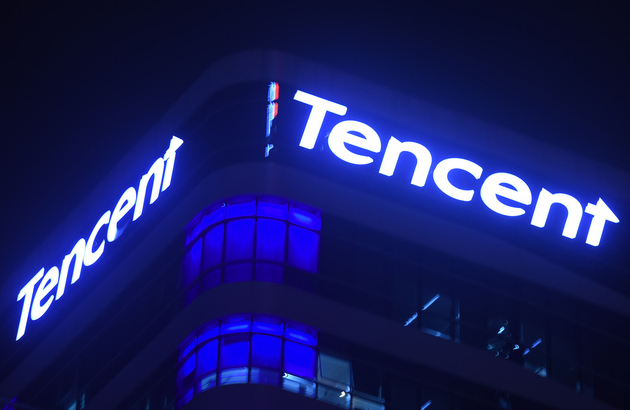
Photo/VCG
Dec. 19 (NBD) – China's tech titan Tencent released on Tuesday a smart speaker with a screen. This is the second self-developed smart speaker of the behemoth.
The new smart speaker is equipped with an eight-inch high-definition screen and Tencent Dingdang audio system and artificial technology. Users can have access to the video, music, news and book resources in the Tencent system via the new product.
The company's new product signals a new trend in the smart speaker industry that smart speakers will be equipped with screens in the future.
Phil Schiller, senior vice president of Apple's Worldwide Marketing, once said in an interview that the lack of an onboard screen of dedicated voice assistants is a hindrance in many situations.
Li Xuechao, vice president of Tencent Intelligent Platform, agreed with Schiller's view and stated Tencent would connect speakers without screens to the Dingdang product system with the help of Dingdang AI assistant.
When asked about Tencent's disadvantages in developing smart speakers, especially hardware development, Li told news outlet Yicai that smart speakers are essentially a combination of software and hardware, and the company, which has been good at software development, indeed doesn't have much advantage when it comes to the cooperation with hardware manufacturers and other companies along the supply chain.
But cooperation between the tech giant and hardware suppliers and establishment of hardware talent groups guarantee the quality of products, Li added.
Since 2017, Amazon, Facebook, Baidu, Lenovo and Google have successively released smart speakers and enriched contents and resources either through cooperation or self-development.
The price war among smart speaker makers was highlighted last year with tech giants competing with each other by offering big price cuts. In 2018, Alibaba and Baidu continued the strategy.
Jing Kun, general manager of Baidu's Smart Living Group, claimed it is too early to pursue commercialization of smart speakers. There are still a large number of potential users in third- and fourth-tier cities. In Jing's opinion, offering subsidies to popularize the products will last for one or two years.
But Li Xuechao had different views on the price war saying that attracting users by providing subsidies is not feasible in the long run. Therefore, Tencent adjusted the cost structure by negotiating with hardware manufacturers.
An industry insider told Yicai that top-level companies like Baidu and Alibaba have prepared whopping capitals for the next round of subsidizing, which has discouraged other smart speaker start-ups from releasing new products.
According to the report on China's smart speaker market for the third quarter of 2018 released by research firm Canalys in November, shipments of smart speakers in China reached 5.8 million units, an increase of one percent over the previous quarter. Alibaba, Xiaomi and Baidu were the top three companies in terms of smart speaker shipments.
China's smart speaker market has been occupied by big companies so it's rather hard for small companies to stand out from the competition. Although the real level of user demand for smart speakers is currently unproven, China's smart speaker industry will soon surpass that of the U.S., Hattie He, an analyst with Canalys, noted.
Email: wenqiao@nbd.com.cn


 川公网安备 51019002001991号
川公网安备 51019002001991号





